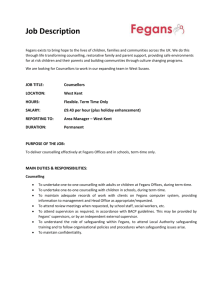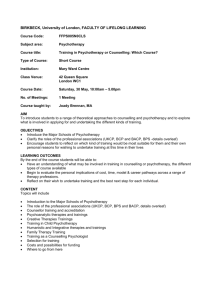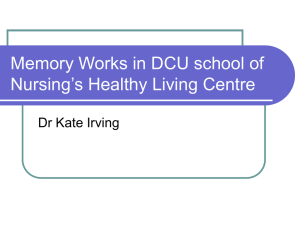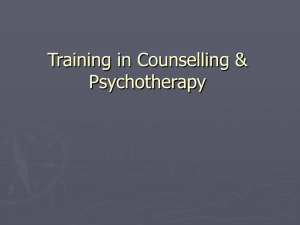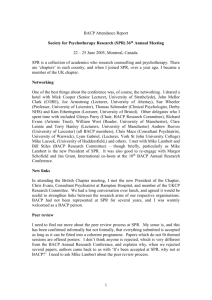24K - RA Review
advertisement
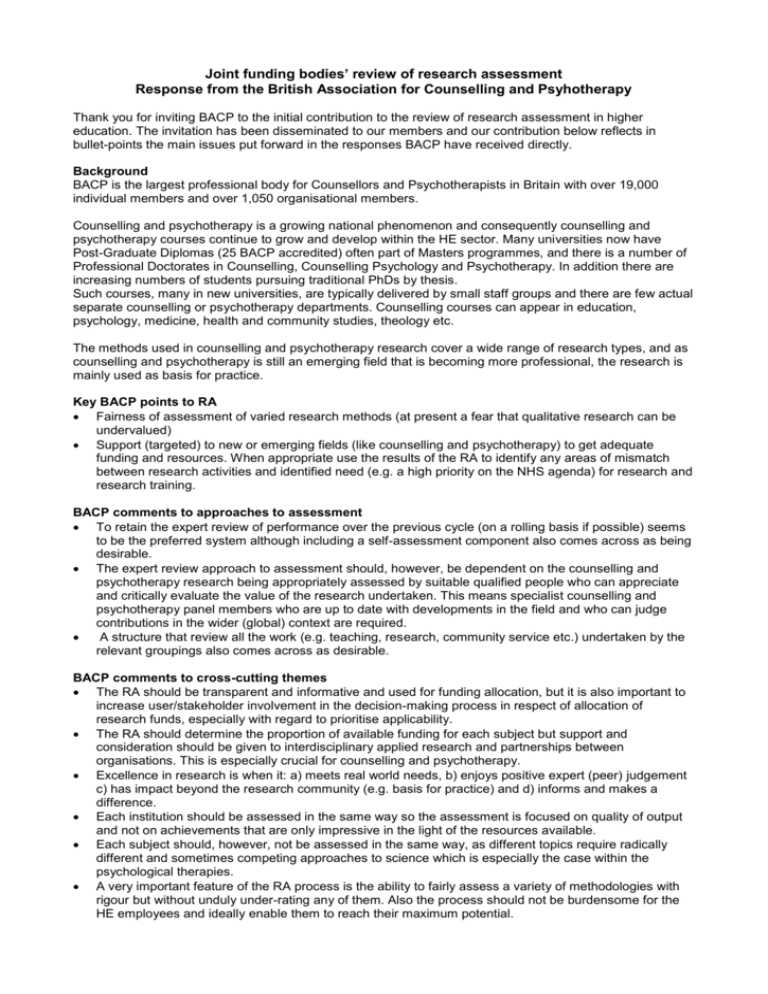
Joint funding bodies’ review of research assessment Response from the British Association for Counselling and Psyhotherapy Thank you for inviting BACP to the initial contribution to the review of research assessment in higher education. The invitation has been disseminated to our members and our contribution below reflects in bullet-points the main issues put forward in the responses BACP have received directly. Background BACP is the largest professional body for Counsellors and Psychotherapists in Britain with over 19,000 individual members and over 1,050 organisational members. Counselling and psychotherapy is a growing national phenomenon and consequently counselling and psychotherapy courses continue to grow and develop within the HE sector. Many universities now have Post-Graduate Diplomas (25 BACP accredited) often part of Masters programmes, and there is a number of Professional Doctorates in Counselling, Counselling Psychology and Psychotherapy. In addition there are increasing numbers of students pursuing traditional PhDs by thesis. Such courses, many in new universities, are typically delivered by small staff groups and there are few actual separate counselling or psychotherapy departments. Counselling courses can appear in education, psychology, medicine, health and community studies, theology etc. The methods used in counselling and psychotherapy research cover a wide range of research types, and as counselling and psychotherapy is still an emerging field that is becoming more professional, the research is mainly used as basis for practice. Key BACP points to RA Fairness of assessment of varied research methods (at present a fear that qualitative research can be undervalued) Support (targeted) to new or emerging fields (like counselling and psychotherapy) to get adequate funding and resources. When appropriate use the results of the RA to identify any areas of mismatch between research activities and identified need (e.g. a high priority on the NHS agenda) for research and research training. BACP comments to approaches to assessment To retain the expert review of performance over the previous cycle (on a rolling basis if possible) seems to be the preferred system although including a self-assessment component also comes across as being desirable. The expert review approach to assessment should, however, be dependent on the counselling and psychotherapy research being appropriately assessed by suitable qualified people who can appreciate and critically evaluate the value of the research undertaken. This means specialist counselling and psychotherapy panel members who are up to date with developments in the field and who can judge contributions in the wider (global) context are required. A structure that review all the work (e.g. teaching, research, community service etc.) undertaken by the relevant groupings also comes across as desirable. BACP comments to cross-cutting themes The RA should be transparent and informative and used for funding allocation, but it is also important to increase user/stakeholder involvement in the decision-making process in respect of allocation of research funds, especially with regard to prioritise applicability. The RA should determine the proportion of available funding for each subject but support and consideration should be given to interdisciplinary applied research and partnerships between organisations. This is especially crucial for counselling and psychotherapy. Excellence in research is when it: a) meets real world needs, b) enjoys positive expert (peer) judgement c) has impact beyond the research community (e.g. basis for practice) and d) informs and makes a difference. Each institution should be assessed in the same way so the assessment is focused on quality of output and not on achievements that are only impressive in the light of the resources available. Each subject should, however, not be assessed in the same way, as different topics require radically different and sometimes competing approaches to science which is especially the case within the psychological therapies. A very important feature of the RA process is the ability to fairly assess a variety of methodologies with rigour but without unduly under-rating any of them. Also the process should not be burdensome for the HE employees and ideally enable them to reach their maximum potential. We hope that the above comments will be helpful for the steering group. BACP is very committed to playing its part in strengthening the research base of counselling and psychotherapy and would welcome opportunities where we can be of any further help in the course of this review on the wider consultative group, at meetings, with focus groups etc.

